IUI or intrauterine insemination; assisted reproduction method

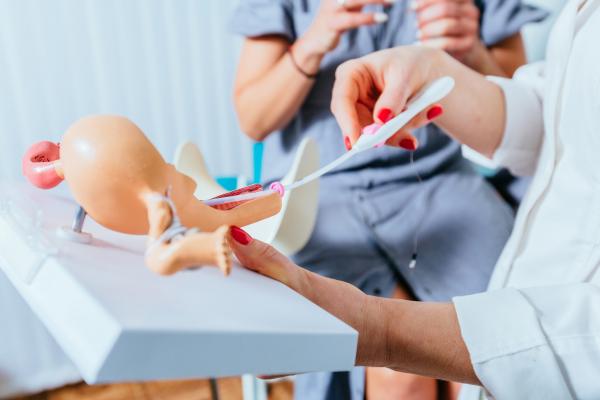 IUI or intrauterine insemination
IUI or intrauterine inseminationOne of the effective methods of assisted reproduction is the use of iui or intrauterine insemination, which increases the chance of egg and sperm contact in this method. This procedure is relatively simple and painless and is performed under the supervision of a doctor without anesthesia.
What is IUI?
IUI or the injection of washed sperms into the uterine cavity, which is considered one of the assisted reproductive methods. This method can increase the probability of egg contact with sperm in the uterine environment, thus increasing the chance of pregnancy. IUI is a very simple but practical method that is very widespread in the treatment of infertility.
In what cases is IUI recommended to the patient?
IUI is the first line of infertility offered to patients after IVF. In the following situations, it is recommended to use the IUI method.
– Low sperm count or low sperm motility.
– High number of abnormal sperms.
– Low volume of semen.
– Presence of antisperm antibody in semen
– The presence of lethal sperm secretions in the cervix
– Lack of cervical mucus
– When the mucus in the cervix is very thick so that it does not allow the passage of sperm. This problem can be identified when performing certain tests.
– Mild or moderate endometriosis
– Inability to ejaculate in a woman's vagina due to sexual problems, structural disorders of the penis, paralysis of the male lower limb or the presence of retrograde ejaculation
– Problems related to ovulation in women
– Involuntary contraction of vaginal muscles so that sexual contact is impossible.
– Infertility with unknown causes
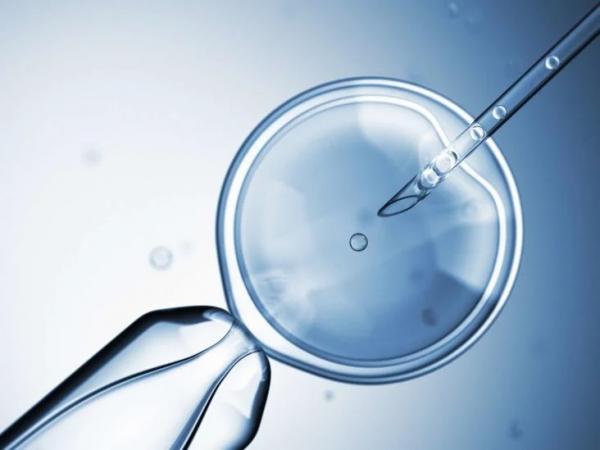 IUI or intrauterine insemination; assisted reproduction method
IUI or intrauterine insemination; assisted reproduction methodHow is IUI performed?
This procedure will be relatively simple and painless, performed under the supervision of a doctor and without the need for anesthesia. In this method, the semen is often washed using special tools, and then the washed sperms are poured into the woman's uterus through a narrow tube.
The use of IUI with the aim of increasing the chance of pregnancy is done along with the use of ovarian stimulating drugs, as a result the number of eggs released in the relevant cycle increases by two or four. To achieve this, the doctor prescribes ovarian stimulation drugs, which must be taken in the right dose and at the right time.
Then the doctor examines the state of the ovaries with ultrasound and observes the follicles to make sure that the state of the uterus is normal, injects fertility drugs and finally stimulates ovulation.
Usually, after HCG injection, IUI is performed about 36 to 48 hours later. In some cases, depending on the existing conditions, the doctor performs IUI twice, one day apart, in order to increase the chance of fertility.
When the exact time of the IUI operation is announced to the person and to the couple, the man must submit his sperm sample to the laboratory after 2-5 days of abstaining from sexual intercourse and ejaculating semen. Semen is poured into a sterile container by masturbation or using condoms that do not contain sperm killers, and is provided to the person responsible for collection in the laboratory.
The sample taken must be fresh so that they can be used in experimental conditions. In the laboratory, the sperm sample taken is separated from the semen by washing with special substances and will be ready for injection. In the next step, sperm is injected into the uterus using a thin plastic tube called a catheter.
After completing the procedure, the patient does not need to be hospitalized, but most doctors keep the patient immobile on the bed for about 30-60 minutes. After being transferred home, there is no need for absolute rest and the doctor can do his daily work normally. Two weeks after the IUI operation, a pregnancy test is performed and the result of the operation is known.
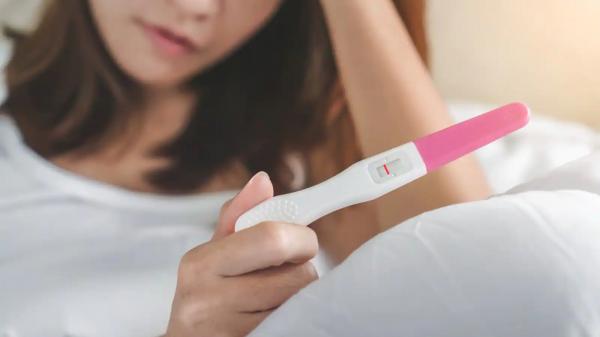 IUI or intrauterine insemination; way to do
IUI or intrauterine insemination; way to doWhat is the success rate of IUI?
The success rate obtained as a result of IUI is between 6 and 24%, which will be different in each treatment cycle. The success of this operation depends on several factors. In cases where the number and quality of the man's sperm will be appropriate, the success rate of this method is higher than other people who inevitably use this method due to low sperm count.
It should be noted that women will play an important role in the success rate, the age of the woman, her physiological conditions will have a great impact in this field. For example, if a woman is more than 35 years old, the probability of pregnancy in this method will decrease significantly.
In case of failure in the treatment after 3 to 6 IUI cycles, other methods of infertility such as artificial insemination are used.
Necessary follow-ups after IUI procedure:
Often after 6 to 12 days of ovulation, embryo implantation can occur in any part of the uterus, it is only necessary to perform a pregnancy test through a blood test two weeks after IUI.
If the blood test is positive, it is necessary to receive the pregnancy test again after 48 hours. This test can check the trend of increasing pregnancy hormones.
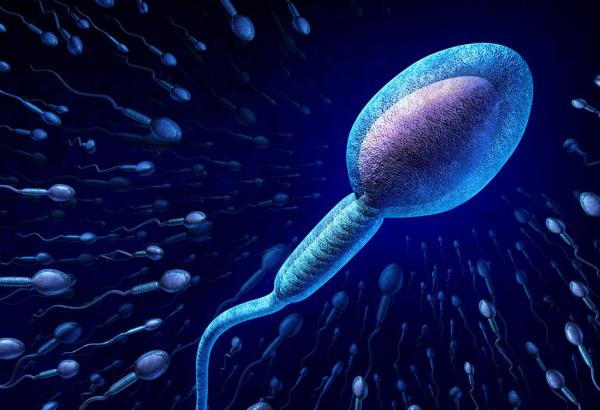 IUI or intrauterine insemination; Probability of success
IUI or intrauterine insemination; Probability of success General recommendations to increase the success of IUI:
If intercourse is performed after IUI, the chance of fertility increases, provided that the patient does not have spotting or bleeding during this procedure, in which case intercourse is recommended after 48 hours.
If suppositories are used after IU, you must avoid swimming, otherwise there will be no restrictions.
It is recommended to start taking supplements and vitamins the day after IUI.
Using a proper diet, exercising, not using tobacco and alcohol, as well as reducing caffeine consumption can increase the chances of IUI success in women.
Men who have a diet rich in antioxidants such as fruits and vegetables, consume routine multivitamins and keep their weight in a reasonable range, do regular sports and avoid stress, as well as not being poisoned by heavy metals. Insecticides and chemicals in solvents are safe. They will increase the success rate of IUI.
Smoking in men can affect sperm through two mechanisms, which include the following:
It will lead to changes in the shape of the sperm and, as a result, disorders related to the penetration of the sperm into the egg.
It leads to the destruction of sperm DNA, this issue can cause serious problems such as developmental-mental retardation for the fetus, on the other hand, even chewing tobacco can lead to a decrease in the number of sperm and erectile disorders in the male penis.
Men should avoid bathing in hot water, hot baths, or wearing tight clothing that restricts blood flow to the testicles, which can affect sperm health.
Taking antibiotics can affect sperm quality. Therefore, you should consult with an infertility specialist about not taking these antibiotics a few weeks before performing IUI.
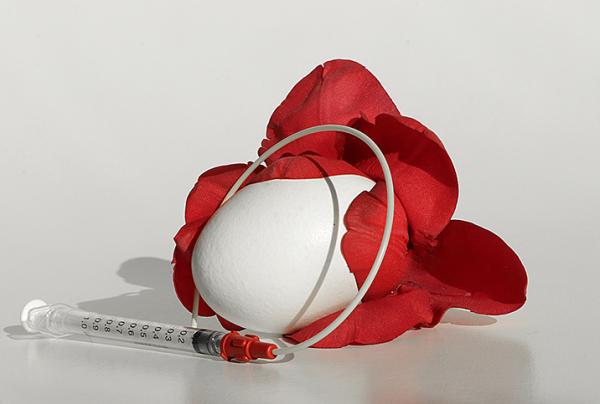 IUI or intrauterine insemination; Appropriate recommendations for action
IUI or intrauterine insemination; Appropriate recommendations for actionComplications of IUI:
Many people who use IUI experience pain similar to a pap smear test. However, passing the catheter through the cervix can cause small injuries that cause spotting, bleeding, and abdominal pain. Many experts believe that abdominal pain is caused by ovulation, in most cases the cervix is slightly opened during ovulation and the passage of the catheter is not felt.
If the insemination sperms are contaminated; There is a possibility of transmission of transmitted infections through sexual contact. On the other hand, during the passage of the catheter, there is a possibility of contamination of the catheter by microbial agents in these areas, as a result, these microbial agents are transferred to the uterus and will eventually cause the transmission of infection, which can be reduced with proper monitoring and the risk of infection transmission.
If the sperm is not washed accurately, some of the seminal fluid containing prostaglandins (muscle contraction) will enter the uterus and cause severe uterine contractions, abdominal pain and even unconsciousness and uterine collapse. In case of persistent pain, only the use of painkillers containing acetaminophen is allowed, and the use of painkillers from the NSAIDs group such as Ibuprofen should be avoided.
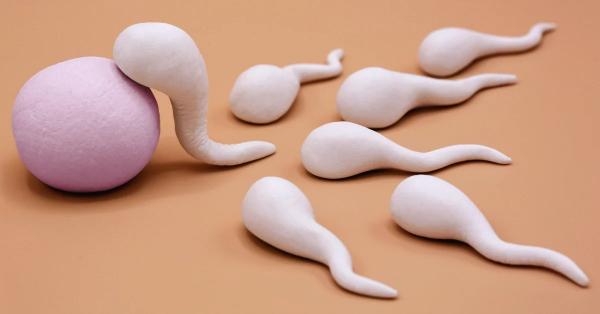 IUI or intrauterine insemination; Complications
IUI or intrauterine insemination; Complicationscompilation: The matrimonial part of the cap






